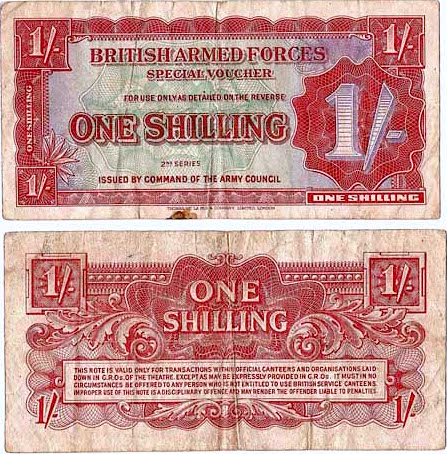|
Petty Cash
Petty cash is a small amount of discretionary funds in the form of cash used for expenditures where it is not sensible to make any disbursement by cheque, because of the inconvenience and costs of writing, signing, and then cashing the cheque. The most common way of accounting for petty cash expenditures is to use the imprest system. The initial fund would be created by issuing a cheque for the desired amount. An amount of $100 would typically be sufficient for most small business needs as the expenses to be covered are for small amounts. The bookkeeping entry for this initial fund would be to debit Petty Cash and credit bank account. This cheque would then be cashed to acquire the actual cash needed for payments. As expenditures are made, the custodian of the fund (a bookkeeper or a member of the administration staff) will reimburse employees and receive a petty cash voucher with a receipt/invoice attached in return. At any given time, the total of cash on hand plus reimburse ... [...More Info...] [...Related Items...] OR: [Wikipedia] [Google] [Baidu] |
Cash
In economics, cash is money in the physical form of currency, such as banknotes and coins. In bookkeeping and financial accounting, cash is current assets comprising currency or currency equivalents that can be accessed immediately or near-immediately (as in the case of money market accounts). Cash is seen either as a reserve for payments, in case of a structural or incidental negative cash flow or as a way to avoid a downturn on financial markets. Etymology The English word "cash" originally meant "money box", and later came to have a secondary meaning "money". This secondary usage became the sole meaning in the 18th century. The word "cash" derives from the Middle French ''caisse'' ("money box"), which derives from the Old Italian ''cassa'', and ultimately from the Latin ''capsa'' ("box").. History In Western Europe, after the fall of the Western Roman Empire, coins, silver jewelry and hacksilver (silver objects hacked into pieces) were for centuries the only form of mone ... [...More Info...] [...Related Items...] OR: [Wikipedia] [Google] [Baidu] |
Cheque
A cheque, or check (American English; see spelling differences) is a document that orders a bank (or credit union) to pay a specific amount of money from a person's account to the person in whose name the cheque has been issued. The person writing the cheque, known as the ''drawer'', has a transaction banking account (often called a current, cheque, chequing, checking, or share draft account) where the money is held. The drawer writes various details including the monetary amount, date, and a payee on the cheque, and signs it, ordering their bank, known as the ''drawee'', to pay the amount of money stated to the payee. Although forms of cheques have been in use since ancient times and at least since the 9th century, they became a highly popular non-cash method for making payments during the 20th century and usage of cheques peaked. By the second half of the 20th century, as cheque processing became automated, billions of cheques were issued annually; these volumes peaked ... [...More Info...] [...Related Items...] OR: [Wikipedia] [Google] [Baidu] |
Imprest System
The imprest system is a form of financial accounting. The most common is petty cash. The basic characteristic of an imprest system is that a fixed amount is reserved, which after a certain period of time or when circumstances require, because money was spent, will be replenished. This replenishment will come from another account, for example petty cash may be replenished by cashing a cheque drawn on a bank account. Petty cash imprest system A petty cash imprest system allows only the replenishment of the spend made. So, if one starts the month with $100 in a petty cash float and spends $90 of it in that month, an amount of $90 will then be placed in the float to bring the balance back to $100. The replenishment is credited to the primary cash account, usually a bank account (Dr - Petty Cash a/c, Cr - Bank a/c) and the debits will go to the respective expenses account, based on the petty cash receipt dockets (Dr - Expense a/c, Cr - Petty Cash a/c). Advantages In this example the m ... [...More Info...] [...Related Items...] OR: [Wikipedia] [Google] [Baidu] |
Voucher
A voucher is a bond of the redeemable transaction type which is worth a certain monetary value and which may be spent only for specific reasons or on specific goods. Examples include housing, travel, and food vouchers. The term voucher is also a synonym for receipt and is often used to refer to receipts used as evidence of, for example, the declaration that a service has been performed or that an expenditure has been made. Voucher is a tourist guide for using services with a guarantee of payment by the agency. The term is also commonly used for school vouchers, which are somewhat different. In tourism Vouchers are used in the tourism sector primarily as proof of a named customer's right to take a service at a specific time and place. Service providers collect them to return to the tour operator or travel agent that has sent that customer, to prove they have given the service. So, the life of a voucher is as below: # Customer receives vouchers from tour operator or travel agent f ... [...More Info...] [...Related Items...] OR: [Wikipedia] [Google] [Baidu] |
Audit
An audit is an "independent examination of financial information of any entity, whether profit oriented or not, irrespective of its size or legal form when such an examination is conducted with a view to express an opinion thereon.” Auditing also attempts to ensure that the books of accounts are properly maintained by the concern as required by law. Auditors consider the propositions before them, obtain evidence, and evaluate the propositions in their auditing report. Audits provide third-party assurance to various stakeholder (corporate), stakeholders that the subject matter is free from Materiality (auditing) , material misstatement. The term is most frequently applied to audits of the financial information relating to a legal person. Other commonly audited areas include: secretarial and compliance, internal controls, quality management, project management, water management, and energy conservation. As a result of an audit, stakeholders may evaluate and improve the effecti ... [...More Info...] [...Related Items...] OR: [Wikipedia] [Google] [Baidu] |
Bookkeeping
Bookkeeping is the recording of financial transactions, and is part of the process of accounting in business and other organizations. It involves preparing source documents for all transactions, operations, and other events of a business. Transactions include purchases, sales, receipts and payments by an individual person or an organization/corporation. There are several standard methods of bookkeeping, including the single-entry and double-entry bookkeeping systems. While these may be viewed as "real" bookkeeping, any process for recording financial transactions is a bookkeeping process. The person in an organisation who is employed to perform bookkeeping functions is usually called the bookkeeper (or book-keeper). They usually write the '' daybooks'' (which contain records of sales, purchases, receipts, and payments), and document each financial transaction, whether cash or credit, into the correct daybook—that is, petty cash book, suppliers ledger, customer ledger, etc. ... [...More Info...] [...Related Items...] OR: [Wikipedia] [Google] [Baidu] |
Double-entry Bookkeeping System
Double-entry bookkeeping, also known as double-entry accounting, is a method of bookkeeping that relies on a two-sided accounting entry to maintain financial information. Every entry to an account requires a corresponding and opposite entry to a different account. The double-entry system has two equal and corresponding sides known as debit and credit. A transaction in double-entry bookkeeping always affects at least two accounts, always includes at least one debit and one credit, and always has total debits and total credits that are equal. The purpose of double-entry bookkeeping is to allow the detection of financial errors and fraud. For example, if a business takes out a bank loan for $10,000, recording the transaction would require a debit of $10,000 to an asset account called "Cash", as well as a credit of $10,000 to a liability account called "Notes Payable". The basic entry to record this transaction in a general ledger will look like this: Double-entry bookkeeping is ... [...More Info...] [...Related Items...] OR: [Wikipedia] [Google] [Baidu] |
Payments
A payment is the voluntary tender of money or its equivalent or of things of value by one party (such as a person or company) to another in exchange for goods, or services provided by them, or to fulfill a legal obligation. The party making the payment is commonly called the payer, while the payee is the party receiving the payment. Payments can be effected in a number of ways, for example: * the use of money, cheque, or debit, credit, or bank transfers, whether through mobile payment or otherwise * the transfer of anything of value, such as stock, or using barter, the exchange of one good or service for another. In general, payees are at liberty to determine what method of payment they will accept; though normally laws require the payer to accept the country's legal tender up to a prescribed limit. Payment is most commonly effected in the local currency of the payee unless the parties agree otherwise. Payment in another currency involves an additional foreign exchange transactio ... [...More Info...] [...Related Items...] OR: [Wikipedia] [Google] [Baidu] |
Accounting Journals And Ledgers
Accounting, also known as accountancy, is the measurement, processing, and communication of financial and non financial information about economic entities such as businesses and corporations. Accounting, which has been called the "language of business", measures the results of an organization's economic activities and conveys this information to a variety of stakeholders, including investors, creditors, management, and regulators. Practitioners of accounting are known as accountants. The terms "accounting" and "financial reporting" are often used as synonyms. Accounting can be divided into several fields including financial accounting, management accounting, tax accounting and cost accounting. Financial accounting focuses on the reporting of an organization's financial information, including the preparation of financial statements, to the external users of the information, such as investors, regulators and suppliers; and management accounting focuses on the measurement, ana ... [...More Info...] [...Related Items...] OR: [Wikipedia] [Google] [Baidu] |

.jpg)




